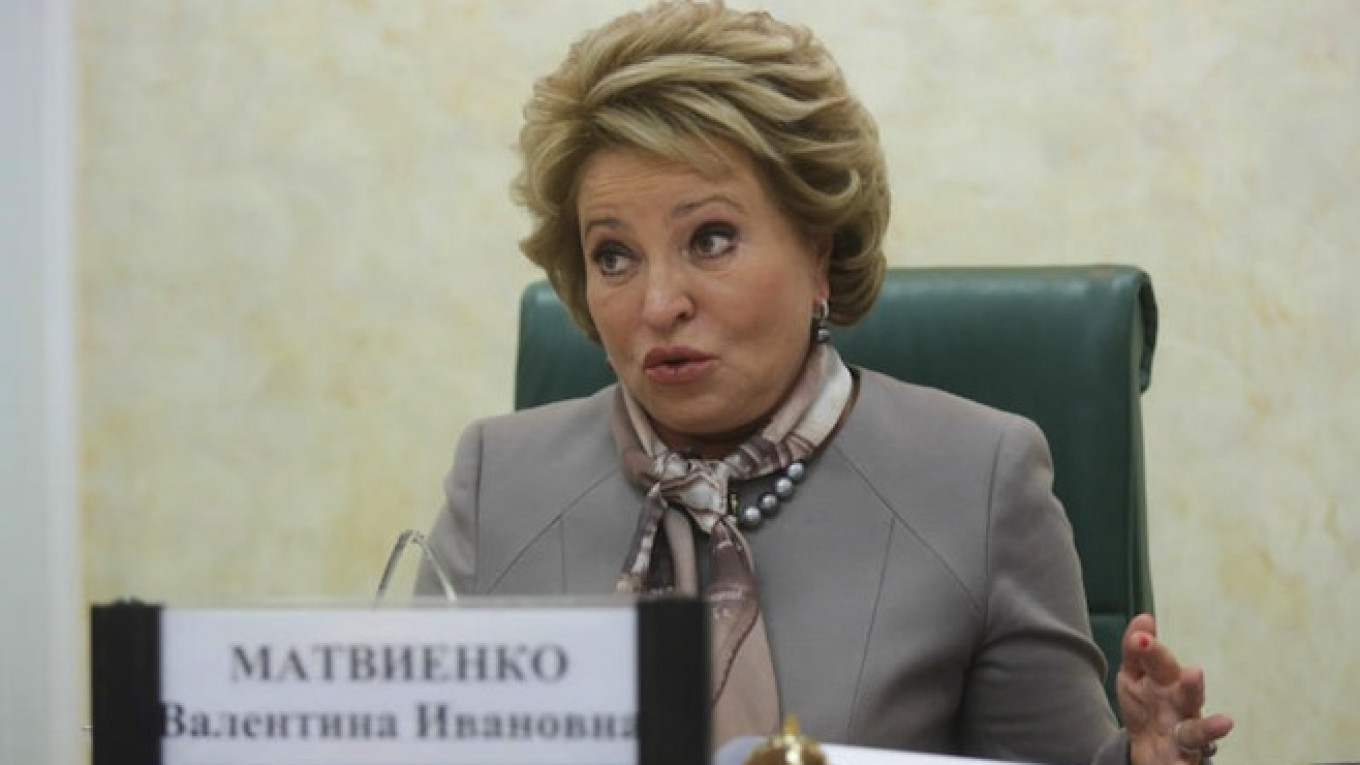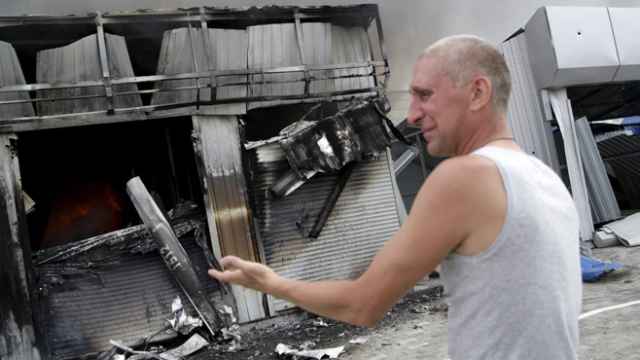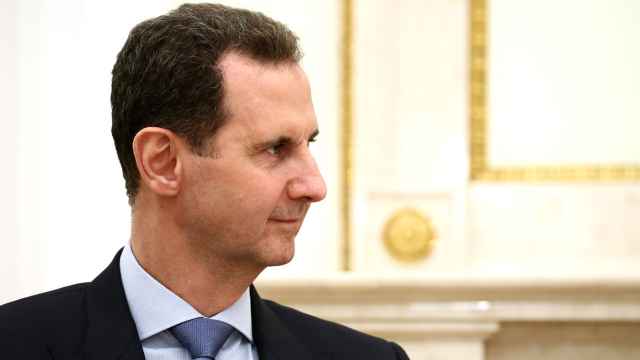The speaker of the Federation Council, the upper chamber of Russia's parliament, told lawmakers to “not go far” during the summer break because the chamber may need to convene for an emergency session, a news report said — but legislative leaders denied speculations that Moscow may be seeking legislative approval for military involvement across the border in Ukraine.
The speaker of the Federation Council, Valentina Matviyenko, said that “there might be a need to hold an additional session of the Federation Council,” the Interfax news agency reported Wednesday.
“So I am asking you to not go far and remain in contact. If such a decision is made, we will inform you in a timely fashion,” she was quoted as saying.
Matvieynko linked the possible emergency session to the “schedule” of the lower chamber of parliament, the State Duma, without elaborating.
A spokesperson for the Federation Council said that the upper chamber may need an extra session if the State Duma adopts a substantial number of new bills, Interfax reported, without providing details.
Russian law requires the Federation Council to review bills passed by the State Duma within 14 days, but the June 12 Russia Day national holiday may disrupt legislative schedules, requiring an emergency session over a weekend, the upper chamber's head of the constitutional law committee Andrei Klishas said, Interfax reported.
“There is no intrigue around the possible convention of the Federation Council for an emergency session,” Klishas was quoted as saying.
The head of the Federation Council's defense and security committee Viktor Ozerov said he did not know the reason for Matviyenko's request, but that he thought it unlikely to be connected to any plans to send Russian troops across the border into Ukraine, independent Ekho Moskvy radio reported.
Matviyenko's announcement came on a day when the first serious battle in several months erupted in eastern Ukraine between pro-Russian separatists and Ukrainian government forces. Each side blamed the other for the escalation of the conflict, which threatened to rupture a fragile ceasefire and set the country again on the brink of a full-blown war. The violence subsided later in the day.
Russia denies Western and Ukrainian accusations that its troops are fighting alongside the separatist rebels, using weapons supplied by Moscow. But maintaining the denial outside of Russia's borders has been increasingly difficult. The United Nations' Assistant Secretary-General for Human Rights Ivan Simonovic said this week that there is increasing evidence, though not yet conclusive legal proof, of Russian state involvement, Reuters reported.
Russian President Vladimir Putin has already sought parliamentary approval for overt military involvement in Ukraine, receiving permission from the Federation Council during an emergency session on March 1 last year to send troops into the neighboring country, supposedly to protect ethnic Russians there. The permission was revoked last June, however, after Moscow annexed Crimea.
See also: Federation Council Approves Putin's Request for Troop Deployment in Ukraine
During the latest round of fighting in eastern Ukraine, at least five government troops were killed and another 39 injured, according to a Thursday morning tally released by Ukrainian presidential adviser Yuriy Biryukov on his Facebook page.
Rebels in the city of Donetsk reported 15 dead on Wednesday in territory under their control, according to the Associated Press. The number included both civilians and combatants.
Ukrainian Foreign Minister Pavlo Klimkin, in Berlin, said that the escalation was an attempt by Russia to disrupt a planned speech by Poroshenko in Ukraine's parliament on Thursday, and the G7 summit, which will begin in Germany on Sunday, the Wall Street Journal reported.
“If something’s coming up, the Russians always organize something on the ground,” Klimkin was quoted as saying.
U.S. State Department spokeswoman Marie Harf agreed with Klimkin, saying “Russia bears direct responsibility for what’s happening here.”
“These are combined Russian separatist forces that launched coordinated attacks overnight against Ukrainian positions on the Ukrainian Government’s side of the ceasefire line,” she said.
A Message from The Moscow Times:
Dear readers,
We are facing unprecedented challenges. Russia's Prosecutor General's Office has designated The Moscow Times as an "undesirable" organization, criminalizing our work and putting our staff at risk of prosecution. This follows our earlier unjust labeling as a "foreign agent."
These actions are direct attempts to silence independent journalism in Russia. The authorities claim our work "discredits the decisions of the Russian leadership." We see things differently: we strive to provide accurate, unbiased reporting on Russia.
We, the journalists of The Moscow Times, refuse to be silenced. But to continue our work, we need your help.
Your support, no matter how small, makes a world of difference. If you can, please support us monthly starting from just $2. It's quick to set up, and every contribution makes a significant impact.
By supporting The Moscow Times, you're defending open, independent journalism in the face of repression. Thank you for standing with us.
Remind me later.






